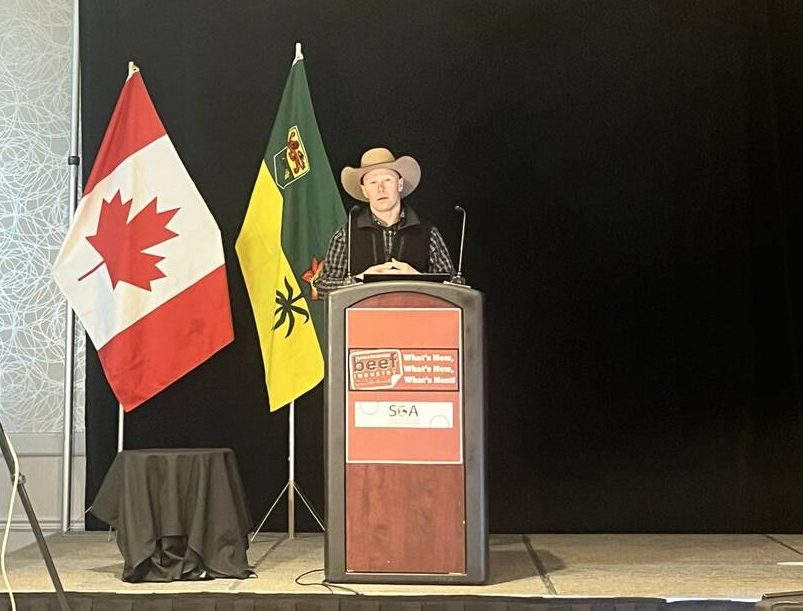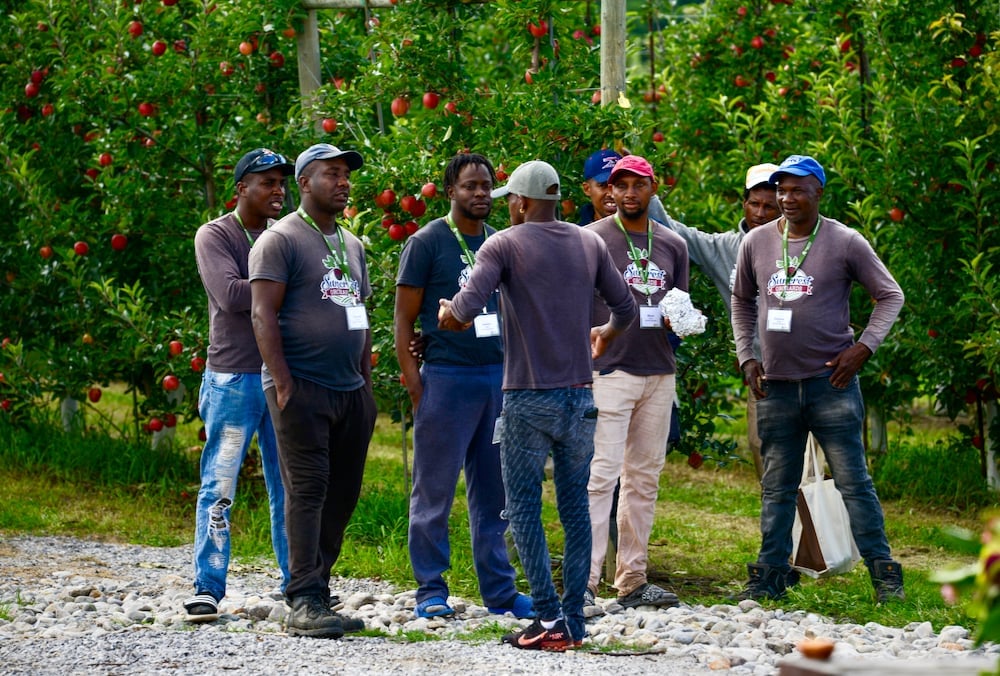Threat of tariffs looms at Saskatchewan Beef Industry Conference

Glacier FarmMedia—The Canadian Cattle Association says threatened 25 per cent tariffs would cut Canadian wholesale beef prices by 13 per cent, but effects would be tempered slightly by the low Canadian dollar.
“Obviously a huge blow to the benchmark beef price,” said CCA vice president Tyler Fulton. “I think many of us would respond, ‘well, it’s a good thing we’ve got cattle prices where they’re at now in that event,’ but in any case, it will cause huge uncertainty.”
Read Also


Temporary foreign worker system called “Inherently exploitative”
Canada’s temporary foreign worker (TFW) program is “inherently exploitative and discriminatory,” and violates Canada’s international obligations according to a report from Amnesty International released today.
CCA presented findings from an economic study at the Saskatchewan Beef Industry Conference in Saskatoon this week. U.S. President Donald Trump has said he is considering levying 25 per cent tariffs on goods from Canada and Mexico them early as Feb. 1. Potential effects of those tariffs was a major theme at the conference.
With the threat of tariffs looming, the CCA has been focusing its attention on the United States, attending as many different producer meetings in as many different states as possible.
However, Fulton was surprised by how little producers in the U.S. are talking about tariffs.
“This is not on their radar. This is not something that they’re concerned about, which I found shocking. So that’s the context.”
Because the U.S. is such a key market, Canada Beef is looking at contingency plans to deal with tariffs, including honing in on key markets such as Hong Kong, said Albert Eringfeld, the vice president of that organization. Canada has a 22 per cent share in the U.S. beef market – 80 per cent of Canadian cattle go south.
“Obviously, if that happens and it were to last long term and where we would shift our marketing, not only here in the domestic market, but also in the international markets, where there’s … potential outside of the US,” Eringfeld said.
While it is still up in the air if Trump will implement tariffs, market analyst Kevin Grier said he thinks it will happen. He said it’s important for producers to operate as if the tariffs will be implemented, to be best prepared.
When it comes to the cow-calf producer, tariffs don’t have to hurt right away said Grier. Instead, those producers are able to wait and see what happens.
“The industry should be able to wait it out,” Grier said. “They’re not like a cattle feeder that’s got cattle that have to move. It’s not like a packer that’s got meat that’s got to move. A cow-calf guy probably did most of the marketing already, and hopefully, they can wait it out. There’s no set reason why cattle have to move right now.”
Packers, however, are another story. Canadian packers are dependent on the U.S. for 20 per cent of their production. Canada is currently planning to counter with retaliatory tariffs despite opposition from Alberta Premier Danielle Smith. This means it’s likely that fewer cattle from the U.S. will be coming into Canada.
“Either we might put a tariff on their beef, let’s say, or we just wouldn’t import it because we got so much up here that could be sold. But even take into account the net exports, still 20 per cent of (packers) production goes to the United States,” Grier said.
“It’s all bad news on the fed cattle and on the beef side.”
The feeder side of things will be feeling the pressure too because of the need to move cattle. Grier said the amount of risk for feeders when buying cattle is larger than ever.
Will Lowe, the chair of the National Cattle Feeders Association, said he is concerned that tariffs could cause a crisis. However, he noted that it’s not just Canada that will feel the effects – the United States will, as well.
“The US has the risk of running those plants under capacity, and depending on how long that situation goes on, they run the risk of doing some major damage, especially in the Pacific Northwest,” Lowe said.
Canada exports a large amount of fat cattle into the Pacific Northwest region of the U.S.
There’s not a lot of opposition to Trump’s tariffs on the U.S. side of the industry. Lowe said he continues to push the effect they will have on both countries.
“The thing that needs to be highlighted to them is the impacts on their own industry. Telling them about the impacts on ours, you’re not going to have any weight with those arguments. It’s got to be weighed to the impacts on their economy, their industry because it’s such an integrated … business in North America,” Lowe said.
Source: Farmtario.com

